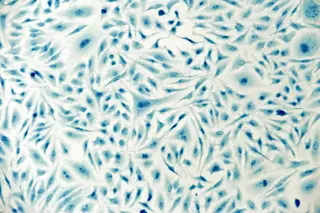Emily Anthes has a new book out, Frankenstein's Cat. It looks quite interesting, but I'll be honest and admit I doubt I'll get to it, mostly because I am relatively sanguine about genetic modification. I don't think it's a qualitative difference from what's been going on for 10,000 years. To me all genuine concerns about this area don't fundamentally have anything to do with the core idea of genetic modification (e.g., rather, it is about control of the means of production, etc.). If you are wondering if you might like the content of Frankenstein's Cat, I would recommend this 40 minute interview of Anthes on NPR. It strikes me that she's presenting a rather "balanced" perspective, acknowledging the concerns of some, while attempting to highlight the genuine benefits of genetic modification. Speaking of which, one thing which came out in the NPR interview is that some animal geneticists are actually ...
The future will envelope us
Explore the themes of Emily Anthes' 'Frankenstein's Cat' and genetic modification concerns in her insightful book.
More on Discover
Stay Curious
SubscribeTo The Magazine
Save up to 40% off the cover price when you subscribe to Discover magazine.
Subscribe












